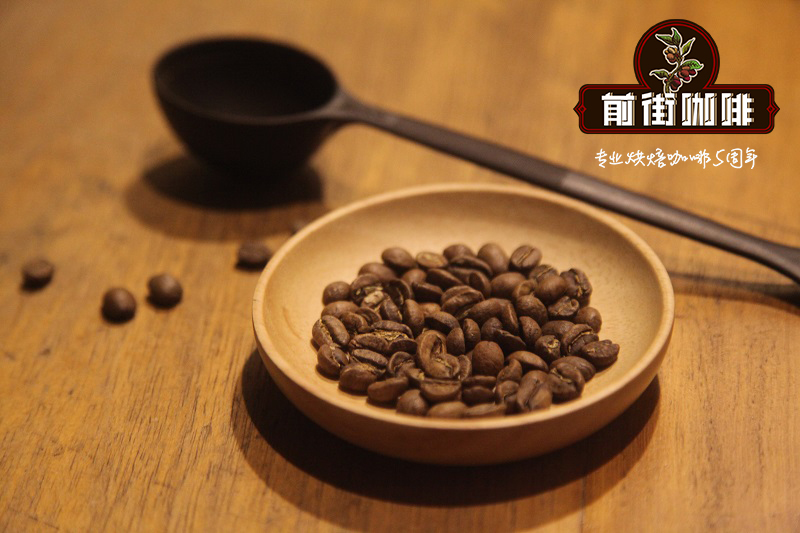Boutique Coffee | how Coffee is transferred from Origin to Coffee Shop | Coffee Trade shift
If you have been to any boutique coffee shop recently, you may not only hear about the source of the coffee, the boutique coffee shop is very important, it can let you know the origin of the coffee and trace the origin.
Isn't all trade direct? What exactly does indirect trade mean?
Direct trade and fair trade
As a term and a convention, direct trade coffee has gradually developed into an alternative to the concept of fair trade coffee. The rise of fair trade in the second half of the 20th century was a way for people to market goods such as coffee, tea and even handicrafts and sell them to places such as the United States and Europe to earn a reasonable cost of living. Fairtrade has become a formal certification for poverty reduction and sustainable development in areas that focus on producing these goods. For coffee in particular, Fairtrade has traditionally used the establishment of coffee cooperatives (cooperatives), in which many growers come together to sell products and make decisions for the community as a whole. When you buy a bag of Fairtrade certified coffee, you can reasonably assume that the person who produces the coffee will receive a reasonable reward for the coffee.
So why switch entirely to the direct trade model? Although fair trade coffee does achieve a more ethical system of buying and selling coffee, direct trading provides coffee merchants with some simple things that fair trade cannot do. First, when a coffee shop talks about coffee in direct trade, this usually means that the owner or seller of the store communicates and buys directly with coffee growers, thus cutting off middlemen and importers / exporters who are usually characteristic of fair trade coffee. There are many benefits of buying directly from coffee growers-which means that buyers can really ensure that the product is purchased at a reasonable price, and if a long-term relationship is established between coffee farms or cooperatives and coffee shops, owners can collaborate on the growth, baking and taste of the beans. Coffee roasters can provide growers with feedback on the quality of coffee beans, and they can change the conditions of the next batch of coffee to produce healthier beans and eventually better coffee. After establishing a relationship, coffee growers can also receive expanded or improved support from specific buyers.
An increasingly globalized world often brings the potential for exploitation and huge economic inequality-a trend that has so far been reversed by direct trade in coffee. When coffee growers and coffee roasters / suppliers can cooperate directly, this may mean that the quality of life of coffee growers is improved, while roasters' coffee quality is higher.

Important Notice :
前街咖啡 FrontStreet Coffee has moved to new addredd:
FrontStreet Coffee Address: 315,Donghua East Road,GuangZhou
Tel:020 38364473
- Prev

Espresso | Origin and History of lattes | when was the first Starbucks latte born?
Latte art latte whether you call it a latte, French coffee or espresso, a latte is a drink that has stood the test of time. It has become one of the classic drinks in modern coffee shops, but how did it get there? The history of the latte is a long and interesting story, and its level is the most traditional
- Next

Decaffeinated coffee | New processing technology brings decaffeinated coffee back to life | decaffeinated coffee is in danger.
Decaffeinated coffee has long been an outcast in the coffee world, especially among coffee connoisseurs, bakers and caffeine aficionados. The reputation of decaffeinated coffee ranges from mediocre to very dangerous, depending on who you ask. Some people hate the taste of coffee, while others worry about chemicals or carcinogens in coffee. But the dark ages are over! Low caffeine
Related
- Beginners will see the "Coffee pull flower" guide!
- What is the difference between ice blog purified milk and ordinary milk coffee?
- Why is the Philippines the largest producer of crops in Liberia?
- For coffee extraction, should the fine powder be retained?
- How does extracted espresso fill pressed powder? How much strength does it take to press the powder?
- How to make jasmine cold extract coffee? Is the jasmine + latte good?
- Will this little toy really make the coffee taste better? How does Lily Drip affect coffee extraction?
- Will the action of slapping the filter cup also affect coffee extraction?
- What's the difference between powder-to-water ratio and powder-to-liquid ratio?
- What is the Ethiopian local species? What does it have to do with Heirloom native species?

